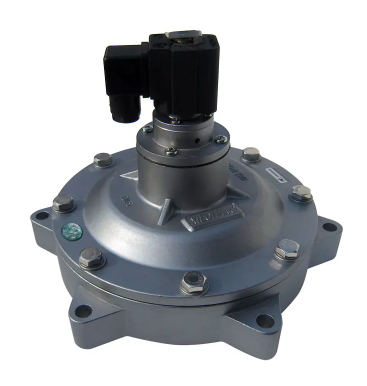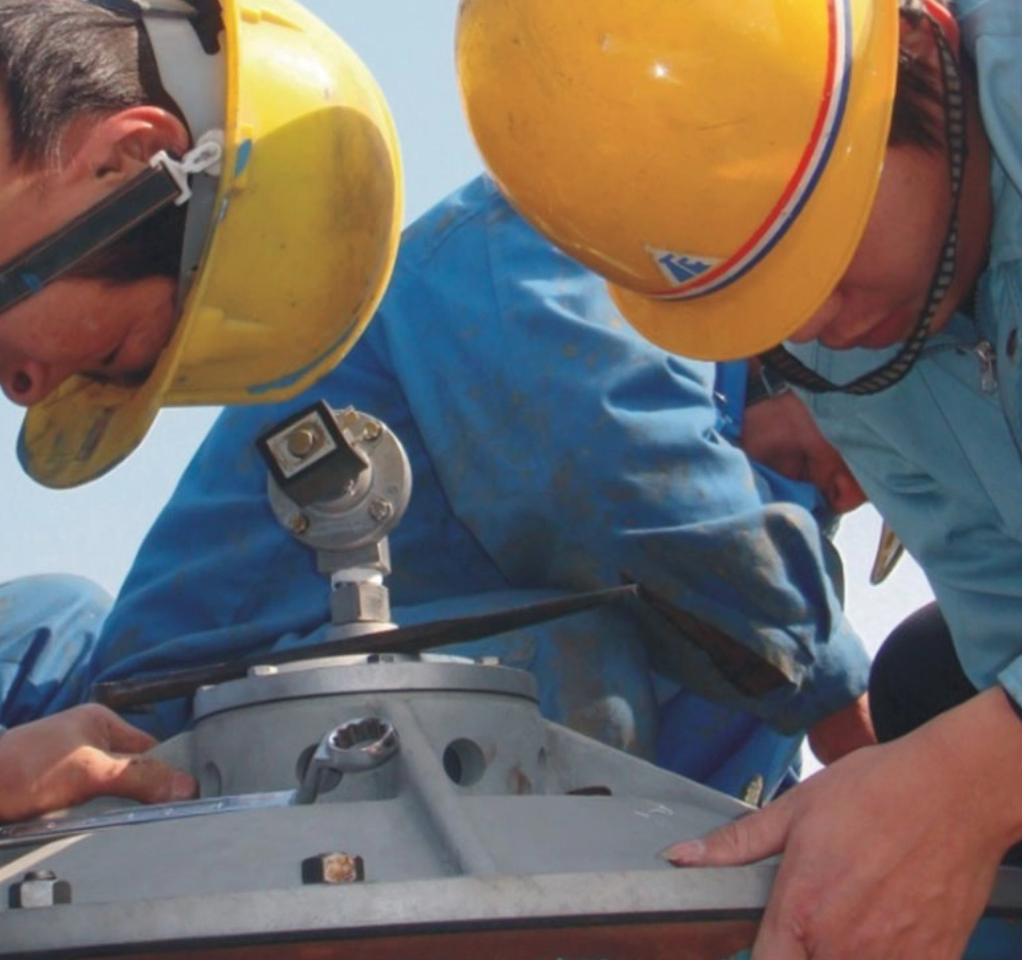Pulse valves are specialized components designed to deliver short, powerful bursts of compressed air, making them ideal for industrial applications like dust collector systems. Unlike standard solenoid valves that provide continuous airflow, pulse valves are engineered for high-pressure, short-duration bursts. This article will explore the top reasons why pulse valves outperform other valve types, especially in the context of dust collection systems. By the end, you’ll understand why pulse valves are a superior choice for maintaining efficiency and reducing maintenance costs.
What is a Pulse Valve?
A pulse valve is a type of solenoid valve specifically designed to release short, high-pressure bursts of compressed air. Unlike standard solenoid valves, which provide a continuous flow of air, pulse valves are optimized for quick, powerful bursts that are ideal for dislodging dust from filter bags in dust collector systems. This unique functionality makes them highly efficient for cleaning and maintaining industrial air filtration systems.
Pulse valves operate using a diaphragm and a pilot valve to control the flow of compressed air. When energized, the pilot valve opens, allowing air to flow through the diaphragm and create a powerful burst. This burst dislodges accumulated dust from filter bags, ensuring optimal airflow and maintaining system efficiency. The process involves:
1.Closed State: The valve remains closed until activated.
2.Energized State: The pilot valve opens, allowing air to flow through.
3.Open State: A powerful burst of air is released.
4.Closed State: The valve closes, ending the burst.
![Immersed Pulse Valve Immersed Pulse Valve]()
Reasons Why Pulse Valves Are Superior
1. Highly Efficient Dust Removal
Pulse valves are engineered to deliver short, powerful bursts of compressed air that effectively dislodge dust from filter bags. This method ensures thorough cleaning and maintains optimal airflow, preventing clogging and maintaining system efficiency. Compared to continuous blow methods, pulse valves use less compressed air, making them more energy-efficient. The precise control of air bursts allows for targeted cleaning, ensuring that dust is removed without causing damage to the filter bags. This not only extends the life of the filters but also reduces the frequency of maintenance and replacement, ultimately lowering operational costs.
2. Reduced Energy Consumption
One of the key advantages of pulse valves is their reduced energy consumption. Unlike continuous blow methods, pulse valves use short bursts of compressed air, significantly lowering energy usage. This is particularly beneficial in industrial settings where energy costs can be substantial. Double diaphragm designs further enhance efficiency by extending the intervals between pulses, saving compressor energy and reducing operational costs. By minimizing the amount of compressed air used per cleaning cycle, pulse valves contribute to significant energy savings over time, providing a substantial return on investment.
3. Longer Diaphragm Life
Pulse valves are designed to operate with balanced pressure and controlled bursts, reducing wear and tear on the diaphragm. This balanced operation extends the lifespan of the diaphragm, reducing the need for frequent replacements and lowering maintenance costs. XieChang’s pulse valves, for example, come with a 5-year service life or 1 million cycles warranty, ensuring long-term reliability. The robust design and high-quality materials used in these valves contribute to their durability, making them suitable for demanding industrial applications. By choosing pulse valves with a proven track record of longevity, businesses can reduce downtime and maintenance expenses, enhancing overall operational efficiency.
4. Stronger Cleaning Impact
Double diaphragm pulse valves deliver up to 40% stronger air shocks compared to single diaphragm designs. This increased strength is particularly beneficial for heavy-duty industrial applications where dust accumulation can be more severe. The stronger bursts ensure thorough cleaning, maintaining system efficiency and reducing downtime. In industries such as cement manufacturing, steel production, and thermal power plants, where dust buildup can significantly impact performance, the superior cleaning power of double diaphragm pulse valves is essential. By effectively removing dust cakes from filter bags, these valves ensure continuous and efficient operation, even in the most challenging environments.
5. Versatility in Installation
Pulse valves are available in various connection types, making them highly versatile for different installation needs. Options include:
Threaded Pulse Valves: Quick and easy installation, suitable for small to medium systems. These valves are ideal for applications where ease of installation and maintenance is a priority.
Flanged Pulse Valves: Heavy-duty connections for high-volume airflow. These valves are designed to handle large volumes of compressed air, making them suitable for large-scale industrial operations.
Hose-Connected Pulse Valves: Flexible and ideal for confined spaces. Their hose connections allow for easy routing and installation, ensuring that the valve can be positioned optimally for maximum efficiency.
Tank-Mounted Pulse Valves: Pre-assembled systems for baghouse efficiency. These valves are installed directly onto the tank, reducing installation time and ensuring optimal performance.
Remote-Controlled Pulse Valves: Coil protection from dust, moisture, and extreme heat, ideal for harsh environments. The remote control feature allows for safe operation in conditions where dust, moisture, and extreme heat are present, ensuring long-term reliability and reduced maintenance.
| Pulse Valve Type | Description | Key Features | Ideal Applications |
| Threaded Pulse Valves | Quick and easy installation, suitable for small to medium systems. | - Easy installation
- Suitable for smaller systems
- Quick maintenance | Small to medium dust collector systems |
| Flanged Pulse Valves | Heavy-duty connections for high-volume airflow. | - Heavy-duty construction
- High-volume airflow
- Durable connections | Large-scale industrial operations |
| Hose-Connected Pulse Valves | Flexible and ideal for confined spaces. | - Flexible hose connections
- Easy routing
- Suitable for tight spaces | Confined or awkward installation spaces |
| Tank-Mounted Pulse Valves | Pre-assembled systems for baghouse efficiency. | - Pre-assembled
- Direct tank installation
- Reduced installation time | Baghouse dust collector systems |
| Remote-Controlled Pulse Valves | Coil protection from dust, moisture, and extreme heat. | - Remote control
- Coil protection
- Suitable for harsh environments | Harsh environments (dust, moisture, heat) |
6. Reliability in Harsh Conditions
Pulse valves are designed to operate reliably in harsh industrial environments. They are IP65-rated for dust and water protection, ensuring durability and reliability. Additionally, pulse valves can handle a wide temperature range, from -40°C to 180°C, depending on the diaphragm type. This versatility makes them suitable for a wide range of applications, from freezing conditions to high-heat environments. In industries such as mining, cement manufacturing, and metal processing, where extreme temperatures and harsh conditions are common, the reliability of pulse valves is crucial. By choosing valves that can withstand these conditions, businesses can ensure consistent performance and reduce the risk of unexpected failures.
![What We Do What We Do]()
How to Choose the Right Pulse Valve
Factors to Consider
Selecting the right pulse valve involves considering several key factors:
Working Pressure and Air Quality: Ensure the valve can handle the required pressure and air quality.
Connection Size and Type: Choose the appropriate connection type (threaded, flanged, hose-connected, etc.) based on your system requirements.
Operating Temperature Range: Select a valve that can operate within the temperature range of your application.
Diaphragm Type: Choose between normal and high-temperature diaphragms based on your specific needs.
Single vs. Double Diaphragm: Consider the benefits of double diaphragm designs for stronger cleaning impact and extended diaphragm life.
Frequently Asked Questions
What is the difference between a pulse valve and a regular solenoid valve?
Pulse valves are designed to deliver short, high-pressure bursts of compressed air, making them ideal for dust collector systems. Regular solenoid valves provide continuous airflow and are not optimized for short bursts.
Can pulse valves be used for liquids?
Pulse valves are primarily designed for compressed air applications. While some models can handle liquid applications, it is essential to consult the manufacturer’s specifications to ensure suitability.
How long does a pulse valve diaphragm last?
The lifespan of a pulse valve diaphragm depends on usage and operating conditions. XieChang’s pulse valves come with a 5-year service life or 1 million cycles warranty, ensuring long-term reliability.
What is the ideal working pressure for a pulse valve?
The ideal working pressure for a pulse valve depends on the specific application and system requirements. Generally, pulse valves operate efficiently within a range of 3 to 8 bar (44 to 116 psi). Consult the manufacturer’s guidelines for optimal performance.
Conclusion
Pulse valves offer significant advantages over other valve types, particularly in dust collector systems. Their ability to deliver short, powerful bursts of compressed air ensures highly efficient dust removal, reduced energy consumption, and extended diaphragm life. By choosing the right pulse valve and following proper maintenance procedures, you can significantly improve the efficiency of your dust collector system, reduce maintenance costs, and ensure long-term reliability. For expert advice and high-quality pulse valves, consider consulting with a reliable supplier like Suzhou XIECHANG Environmental Protection Technology Co., LTD.























